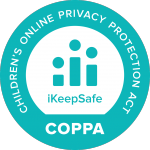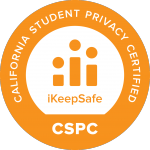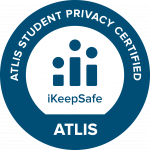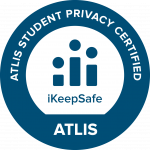Every child learns at their own pace. Some kids struggle in different subjects while others fly through the material. For parents, having an advanced student can be frustrating when they think their child is bored with the material. However, with the right tools, parents can challenge their kids to keep learning after they leave the classroom.
Individual Attention is a Rare Commodity in Schools
Every parent wishes their child would get individual attention throughout the school day, and while teachers try their best, that’s not always possible.
Teacher Laura Preble says she has 40 students per class this year, more than 200 students total. “The problem is that each of those 200 children is someone’s son or daughter; each has his or her own special needs (with or without special ed designation),” she writes. “How can I possibly know them well enough to address all these issues?”
Oftentimes, teachers are left focusing on students who need help the most, leaving advanced students bored because they finished the work without problems.
However, schools themselves aren’t always the problem. “No school setting is perfect,” psychologist Gail Post writes. “There are no public, private, charter, boarding, or even homeschool settings that will meet all of your child’s needs.”
Blaming the school or teacher for your child’s boredom can create conflict in the school system. Instead, Post encourages parents to work with educators and do what they can to create learning environments outside of the classroom.
Advanced Students Can Easily Disengage From the Classroom
Advanced students don’t just need challenging material, they need context for why the information is important. Colleen Kessler at Raising Lifelong Learners says she’s often asked about motivating gifted students. Most parents think their advanced kids will be okay because they’re smart, but they still need guidance and supervision to keep them engaged.
“Gifted children are motivated by the things that interest them and that they believe are important,” she writes. “[They] won’t just do something because they should, or have to, they need to understand the point of it all.”
Even students who aren’t advanced can struggle to stay engaged as they grow older. Zachary Jason for Harvard Ed Magazine discussed the rates of student engagement by grade. One study found that eight in 10 elementary students were engaged in their learning, but only four in 10 high schoolers.
As students age, lessons tend to focus more on standardized testing while the material takes precedence over the student. It’s not important how students learn, as long as they learn the concepts to pass the test.
Engaging students outside of the classroom does two things: It provides context as to why material is important, and it keeps students learning.
8 Ways to Challenge Advanced Students At Home
- Get them moving: Sonia Toledo, founder of Dignity of Children, Inc, says students are either full of energy after sitting all day or tired after a long day of learning. Requiring them to sit still and focus on yet another task isn’t going to work as an after school activity. Whatever you plan, whether a nature hike or visiting a hands-on museum that lets them play, make sure it gives your child a chance to move.
- Show your excitement: Parents can motivate children to learn by showing their own excitement about a topic Marie Mckeown at WeHaveKids writes. If you think learning is cool and are interested in the topics your kids are learning, then they will enjoy learning it with you.
- Add extensions to their lessons: If you want to keep your child engaged, but make the content more advanced, look for lesson extensions to take the content a step further. These could be activities at home that you do as a family. Miss Giraffe says finding add-ons or next steps for advanced students is more mentally stimulating than asking them to do more of the same work.
- Seek out first-hand experiences: While learning in a classroom setting is important, an emotional connection can bring material to life and help students understand the importance of what they’re learning. Exposing students to people and events can help them form cultural awareness and develop stronger connections to school material, Christy Tirrell-Corbin, Ph.D. writes. Look for hands-on ways to connect students to their lessons, from history and culture to math and science.
- Create a space of their own: Sally Y. Walker, Ph.D., executive director of Illinois Association for Gifted Children, encourages parents to set up a corner in their home for creative learning. This might be a science station, a lego-building table, or a craft area. Your child can learn on their own or work with you to enhance their education. This creates a learning environment outside of school and homework.
- Find age-appropriate books: Maryann Woods-Murphy, New Jersey Teacher of the Year in 2010, says younger students need content they can relate to. She references YA novels that feature problems related to boyfriends and driving. Just because a third-grader reads at a middle-school level, doesn’t mean the content is appropriate. Parents should look for books at their child’s reading level that have content their child can handle.
- Create an after-school book club: When educator Suzanne Capek Tingley noticed her advanced students needed extra guidance, she partnered with a few teachers and offered an after school book club. You don’t have to be a teacher to do this, and it gives you an opportunity to find challenging but age-appropriate books for your kids.
- Ask about options to get ahead: In an article for the New York Times, Kyle Spencer profiled students who took summer school classes to gain credit and get ahead. These students weren’t struggling; they just already knew the material and wanted to spend the next year in a challenging environment. Your child may be able to test into a higher level while staying with their peers for other lessons.
Your advanced child doesn’t have to skip grades to be challenged. Parents who help their kids find new ways of viewing the materials they’re taught will allow them to continue learning, expanding that knowledge in meaningful directions.
Stay tuned for part two, with a list of resources and organizations working to keep advanced students engaged and challenged outside of the classroom.









